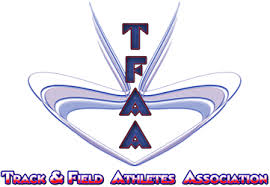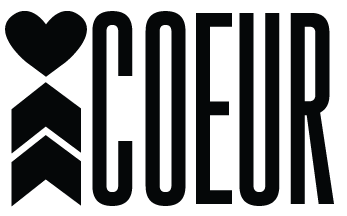If you’ve followed our blog posts for a while, you may have been able to piece together a pretty good picture of our value-set. Perhaps it’s better to say, the value-set to which we aspire. After all, companies are made of people and people are fallible. That being said, we spend a good bit of time talking about our values and even when we drop the ball, we work very hard to pick it up and keep moving in the right direction.
At Coeur, we’ve tried to make it clear that we believe in creating incredibly high quality garments and top of the chart customer service. Now, neither of those aspirations will raise too many eyebrows. After all, you don’t see many companies bragging on low quality or about how they take advantage of their customers. However, there are things we do believe in that are a bit less mainstream. For example, we believe that we should stand for something above just profit. Sure, we have to be profitable but, as we’ve said before, making money isn’t the end all be all. It’s a means to ends. That “something above profit”, can take different forms including supporting organizations like the Challenged Athlete’s Foundation, supporting other women-owned businesses (even if we’re competitors) and taking a stand on compensation for our Pros (i.e. we include guaranteed cash in every deal).
It’s a topic that is tangentially related to the last point that caught our attention over the weekend.
We saw a blog post from Lauren Fleshman about the recent meeting of the governing body for track and field in the U.S. To put it mildly, the post was unsettling. We reached out to Lauren and asked if we could share her post and she graciously agreed (the link is below) but the issues they are dealing with in the running world resonated with us. The short version of the story appears to be that (1) the governing board is very dependent upon a single sponsor for revenue, (2) power is concentrated in the hands of a small group of people, (3) big decisions appear to be made during back room deals, and (4) the athletes have very little influence on their sport.
The fourth point really causes us grief. Perhaps it is because we see how hard pros work that we’re so bothered. Or maybe it's because the deck seems to be stacked against them. Not to get all "preachy" but some pretty smart dudes, namely our country's founding fathers, understood the dangers of concentrations of power and it sure seems like we're looking at a super concentration in this case. Plus, to the point of a stacked deck, the pros (on an individual basis) don’t have much of a voice. In addition, with training taking so much time and energy, they don’t have a lot of bandwidth to figure out how to take on institutions committed to maximizing shareholder value.
Now, as we’ve said before, we understand the economic theories in play here but, just because something is so, doesn’t make it right. That’s why, we’re hoping two things may help make the world be a bit (at least in our humble opinion) more fair for the professional athletes.
First, there’s a fairly new organization called The Track and Field Athletes Association (“TFAA”). The TFAA is a non-profit organization whose mission is to support professional track and field athletes worldwide. It’s a type of non-profit called a 501(c)(4) organization and it was formed to support the rights and interests of professional track and field athletes. Editorial note, Coeur is proud to be a supporter.

The TFAA is of the view that, while numerous national and international organizations are chartered to advance and promote the sport of track and field, unfortunately, none of them represent the collective interests of the elite, professional athletes that make the sport viable. They identify eight points that they fight for including:
- Revenue Sharing: Negotiate with national and international governing organizations, sponsors, and meet organizers to adequately compensate athletes for the value they create. This includes establishing minimum payments for professional athletes on the circuit.
- Olympic Fairness: Represent the interests of athletes at the Olympics with respect to payment for participation, sponsorship rights, and restrictions.
- Reasonable Logo Rules: The current logo rules severely limit how athletes show a return on investment to their sponsors. These rules must change to reflect reality.
- Alternative Track and Field Events: Work to promote alternative venues and events for track and field in order to broaden the fan base.
- Athlete’s Image: Currently, an athlete’s image can be used by organizations to promote or sell an event; however in many cases the athlete can’t even use the image without permission.
- Collective Bargaining: In many of the situations mentioned above, change will occur as a result of a unified, collective voice negotiating in good faith.
- Mentoring: What’s a good contract? How much should you pay your agent? Who do I need to speak with about insurance? Is this a good idea? Mentors do more than just answer simple questions. They pass on information to the next generation.
- Retirement Planning: We want all of our members to have some long-term financial security to show for the years of hard work.
The Second thing that might help even the playing field for pros is the positive disruptive ability of social media. We hope and believe that for a variety of reasons, the majority of people want to see a more fair correlation between effort and reward. Again, we understand that there are structural difference between Track & Field and Triathlon but Pros work incredibly hard and we believe, everyone will win over the long run if compensation for pros in the endurance sports world goes up. The last point is perhaps the most important and if you're interested, we discussed it here.
So with all of that as context, we'd encourage you to give Lauren's blog post a read. It is thought provoking and compelling:
